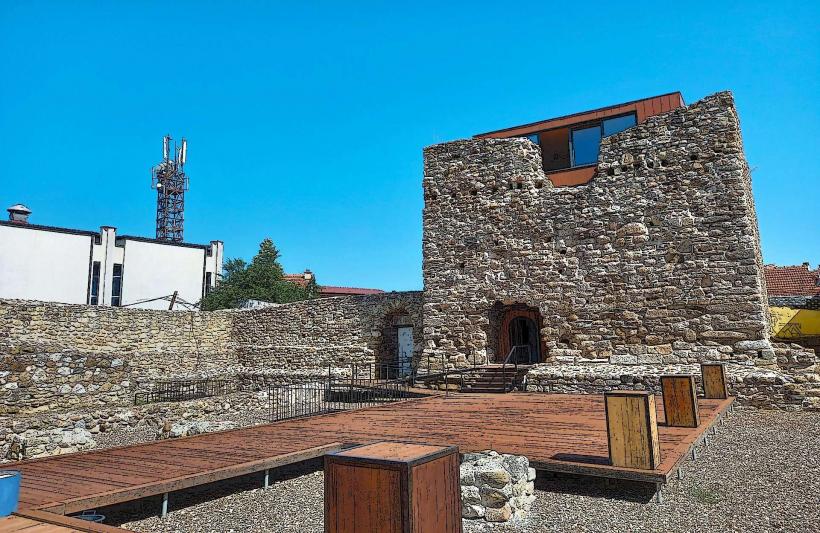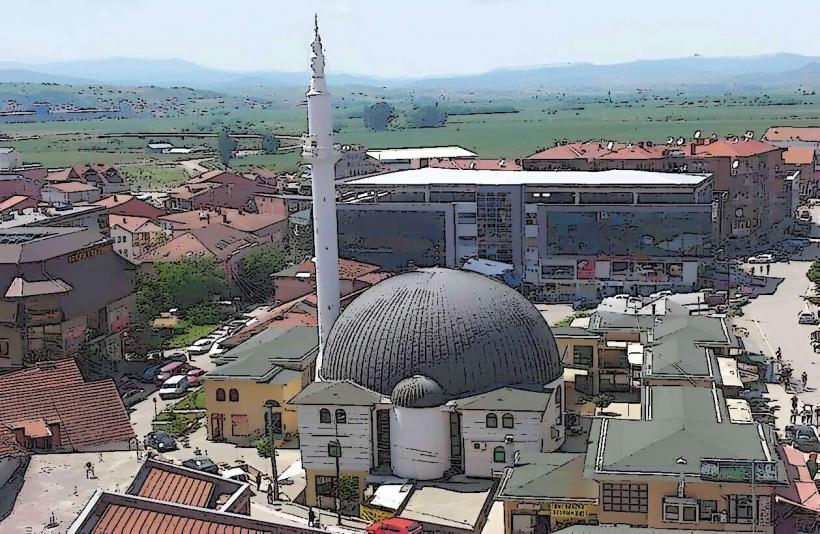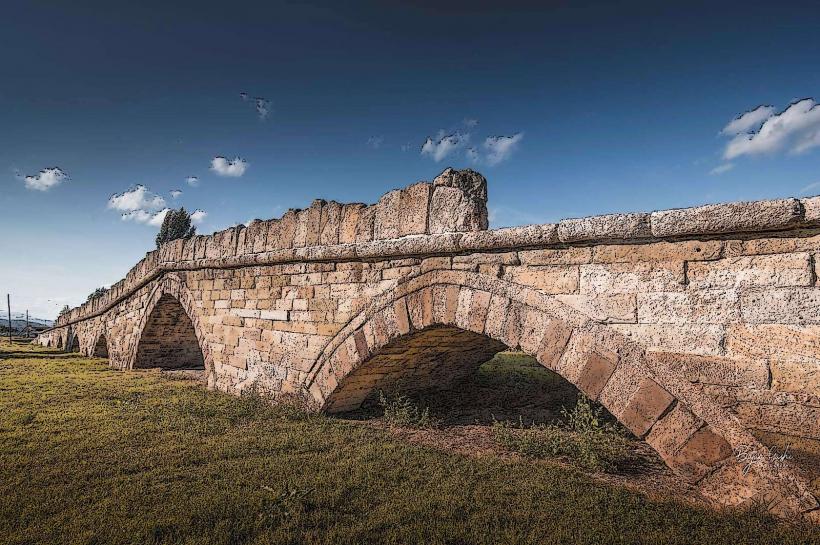Information
Landmark: Memorial of the Battle of KosovoCity: Vushtrri
Country: Kosovo
Continent: Europe
The Memorial of the Battle of Kosovo is a significant historical and cultural monument located near Gazimestan, not far from Pristina, the capital of Kosovo. It commemorates the Battle of Kosovo, which took place on June 28, 1389, between the forces of the Ottoman Empire under Sultan Murad I and the Serbian army led by Prince Lazar Hrebeljanović. This battle is one of the most pivotal events in Balkan history, shaping the future of the region and marking a turning point in the struggle between Christian Europe and the expanding Ottoman Empire.
Historical Background
- Battle of Kosovo (1389):
- The Battle of Kosovo was fought between the Ottoman forces led by Sultan Murad I and the Serbian army commanded by Prince Lazar Hrebeljanović. Both leaders were killed during the battle, which ended inconclusively but had profound long-term consequences for the region.
- While the Ottomans technically emerged victorious, the battle did not result in an immediate Ottoman conquest of Serbia. However, it set the stage for the gradual Ottoman expansion in the Balkans over the next century.
- The battle became a symbolic moment for both Serbian and Ottoman national narratives, with both sides later claiming the battle as a symbol of martyrdom, heroism, and sacrifice.
The Memorial
- Location:
- The Gazimestan Memorial is located near Gazimestan, about 5 kilometers from Pristina, the capital of Kosovo, and it is one of the most visited sites related to the battle.
- The memorial stands on a hill, offering a panoramic view of the Kosovo Plain, where the battle took place, providing visitors with a dramatic setting to reflect on the historic significance of the event.
- Architectural Features:
- The monument at Gazimestan was constructed in 1953, during the Yugoslav era, under the leadership of Josip Broz Tito, as part of the broader effort to commemorate the anti-fascist resistance and various historical events.
- The memorial complex includes:
- A large stone tower, designed in a modernist style, representing the clash of civilizations and cultures that took place in the battle.
- Engravings and inscriptions on the walls, commemorating the heroes and the significance of the battle in shaping the future of the region.
- An eternal flame symbolizing the sacrifices made by both Serbian and Ottoman forces in the battle and the subsequent struggles in the region.
- Plaques and statues reflecting the lasting cultural and historical impact of the Battle of Kosovo on the Serbian and broader Balkan collective memory.
- Symbolism:
- The Gazimestan Memorial is often seen as a symbol of national pride for Serbs, as the battle and its significance have been central to their identity and the narrative of resistance against foreign domination.
- For the Albanians and Kosovars, the Battle of Kosovo is also significant as it marked the beginning of Ottoman domination in the region, which lasted for several centuries.
Cultural and National Significance
Serbian Perspective:
- The Battle of Kosovo is deeply embedded in Serbian national identity. It is often seen as a moment of sacrifice and martyrdom, especially through the figure of Prince Lazar, who is revered as a martyr and a symbol of resistance. The memorial in Gazimestan serves as a place of pilgrimage for many Serbs who come to honor their national heroes and reflect on the legacy of the battle.
Albanian and Kosovar Perspective:
- For many Albanians and Kosovars, the battle represents the beginning of Ottoman rule in the region, which would last for several centuries. Though the battle itself was not decisive in favor of the Ottomans, it paved the way for their eventual control over the Balkans. The memory of the battle is viewed differently, as a symbol of the ongoing struggle for independence and sovereignty, culminating in the eventual independence of Kosovo in 2008.
Inter-ethnic Relations:
- The Battle of Kosovo and the Gazimestan Memorial are emblematic of the complex and sometimes contentious history between Serbs and Albanians in the region. The memory of the battle is often intertwined with contemporary political issues, particularly in the context of Kosovo's independence from Serbia in 2008.
Tourism and Visitor Experience
- Gazimestan as a Tourist Destination:
- The Gazimestan Memorial is a popular destination for those interested in Balkan history, Ottoman heritage, and the region's medieval past. The site attracts a wide range of visitors, including Serbian nationals, tourists, and those interested in the historical significance of the battle and its impact on the region.
- Visitors to the site can explore the surrounding landscape, learn about the historical context of the battle through plaques and informational panels, and reflect on the symbolic importance of the memorial.
- The view from Gazimestan offers a unique perspective of the Kosovo Plain, where the battle unfolded, and is often used for educational and commemorative events.
Memorial Day Celebrations
- Kosovo Liberation Day:
- Every year, on June 28th, the anniversary of the Battle of Kosovo, the Gazimestan Memorial becomes the focal point of events and commemorations, particularly for the Serbian community.
- The day is marked by ceremonies, religious services, and cultural activities aimed at remembering the battle and its significance. The date is also celebrated as Serbian Orthodox religious holidays, such as Vidovdan, which further ties the commemoration to the country’s cultural and religious traditions.
Controversies and Political Implications
- Symbolism in Modern Politics:
- The memorial is a sensitive and sometimes controversial topic in Kosovo, where it is viewed differently by the ethnic Albanian majority. While it is a point of pride for many Serbs, for Kosovo Albanians, the memorial's association with the battle and the subsequent Ottoman dominance is a symbol of historical subjugation.
- The ongoing debates over the memorial reflect the broader tensions between Serbia and Kosovo, which declared independence in 2008 but is not recognized by Serbia and some other countries.
Conclusion
The Memorial of the Battle of Kosovo at Gazimestan serves as an enduring symbol of the Battle of Kosovo's profound historical significance. It represents a complex blend of memory, identity, and cultural heritage that continues to shape the collective consciousness of the people of the Balkans. As both a national monument and a symbol of the long-standing ethnic and political tensions in the region, it remains a powerful testament to Kosovo's past and its ongoing search for identity and reconciliation.




